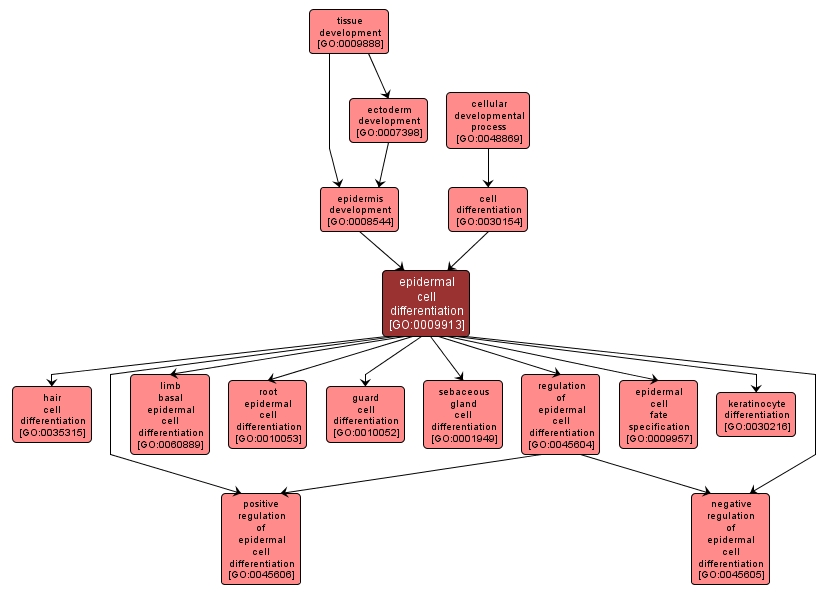GO TERM SUMMARY
|
| Name: |
epidermal cell differentiation |
| Acc: |
GO:0009913 |
| Aspect: |
Biological Process |
| Desc: |
The process whereby a relatively unspecialized cell acquires specialized features of an epidermal cell, any of the cells making up the epidermis. |
Synonyms:
- hypodermal cell differentiation
- GO:0043355
|
|

|
INTERACTIVE GO GRAPH
|














